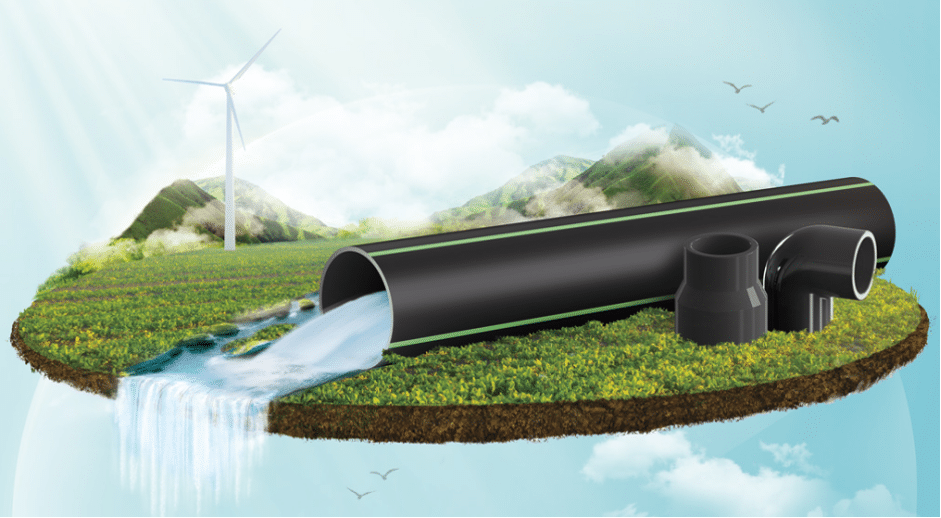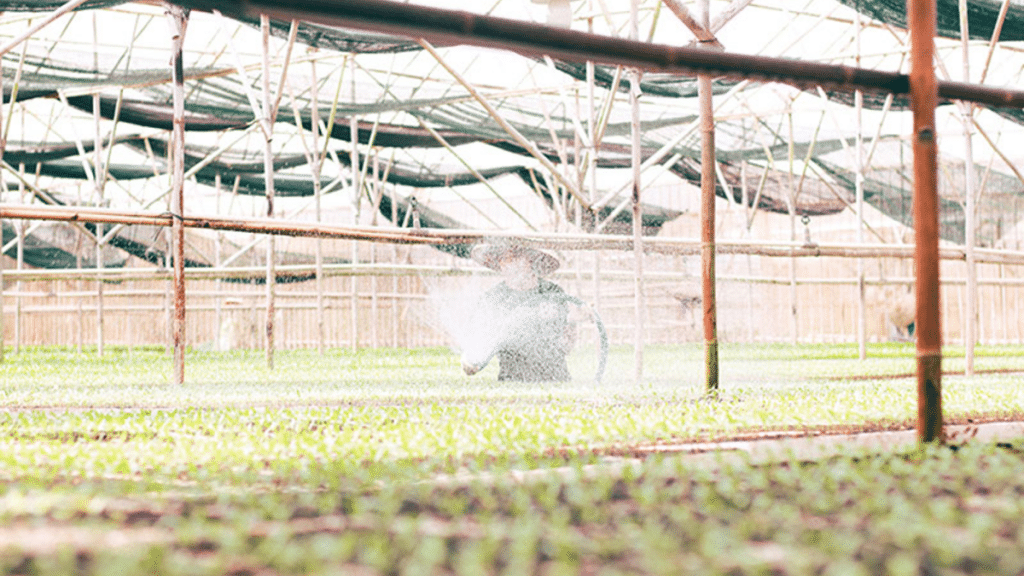Traditional agricultural methods have lacked efficiency for some time now. As agriculture transitions towards more modern practices, upgrading irrigation systems has become inevitable. Implementing improved agricultural water pipe construction plays a key role in this transition process.
Choosing the right agricultural pipe systems is crucial. It helps maximize the efficiency gains of upgraded irrigation infrastructure. This guide explores “what is AG pipe” as well as the top 5 considerations for choosing effective agricultural pipes.
What are the Benefits of Agricultural Pipes?
An efficient irrigation system is crucial for agricultural success. Agricultural pipe systems provide several clear advantages over open-channel irrigation methods. These include:
1. Efficient Irrigation
Properly installed pipes deliver water directly to crops on a scheduled basis. This ensures an even supply of water. It avoids over-watering, flooding, and under-watering. Precisely controlled flow allows farmers to maximize yields while minimizing water consumption. Proper agricultural pipe installation helps improve the efficiency of water usage on farms.
2. Save Water
Less water is lost through evaporation or seepage compared to open channels. Precise delivery wastes no water. With agricultural pipe systems, far less water evaporates into the air without nourishing crops. Conserving water is ever more important as supplies become strained by increasing demand.
3. Save Time and Effort
No need to manually manage open channels. Water is reliably supplied through a controlled agricultural pipe system. Farmers save the work of monitoring open channels so they can focus efforts elsewhere on the farm.
4. Strong Adaptability
Pipes can be designed and installed according to different terrain and soil conditions on the farm. The agricultural pipe flexibly adapts to any landscape. Piping allows customized designs that overcome any challenging spaces or terrains that may be on the property.
How to Choose Agricultural Pipes?
For an agricultural pipe system to provide long and reliable service, careful consideration is required. An effective approach involves selecting pipes suited to the application, soil, and climatic conditions. Key factors determining the choice of pipes include:
1. Corrosion Resistance
Pipes will be buried underground. So, they must withstand corrosion from soil chemistry and underground moisture over many years. This ensures long-lasting performance without deterioration that could cause leaks.
2. Flexibility
Pipes should flex to adapt to changing field conditions. The goal is also to avoid damage during installation and use from ground shifting. Flexibility is key for withstanding movement in the ground without cracking.
3. Lightweight
Heavy pipes are difficult and costly to install across potentially large farm areas. Lightweight materials make projects less strenuous for installation crews. Lifting and carrying lighter pipes saves labor hours throughout a project.
4. Temperature Resistance
Pipes must tolerate both freezing and high heat without losing structural integrity. This maintains year-round functionality without seasonal limitations. Temperature extremes won’t compromise the pipe’s pressure-handling ability.
5. Smooth Surface
A slick internal surface allows efficient water flow without excessive turbulence, pressure drop, or clogging. A smooth bore optimizes hydraulic performance for irrigation needs. Minimal flow with resistance via agricultural irrigation pipe fittings translates to energy and monetary savings as well.
Which Pipe is Best for Agriculture?
Choosing appropriate pipe materials is crucial for improving irrigation efficiency. Agri PVC pipes and PE irrigation pipes are commonly used pipeline materials in agricultural irrigation.
PVC piping offers the best balance of these key qualities at affordable prices compared to pipes made from other materials. Moreover, PE irrigation pipes are also applied in agriculture. The inner wall of these two kinds of pipes is smooth, the fluid resistance is small, and it will not rust. As a result, many farmers have switched to these two kinds of pipes.

LESSO Offers Reliable Agricultural Pipe Systems
LESSO is a leading Chinese manufacturer of piping systems and other building materials. For decades, the brand has built a strong reputation for high-quality piping products. For agricultural applications, LESSO offers a wide selection of reliable piping systems. Its pipes are suitable for uses like irrigation and transporting fluids on farms.
Some pipe types in LESSO’s agricultural lineup include PVC agricultural water pipes and PE irrigation pipes. All these agricultural pipe products undergo stringent quality testing to ensure excellent performance over the long term. The company’s agricultural pipes have several benefits:
- Durability: Reinforced materials and strict quality control resist cracking or bursting from repeated use and pressure fluctuations.
- UV Resistance: Outdoor-rated pipes maintain integrity when exposed to the sun without fading or becoming brittle.
- Lightweight: Pipes can be easily moved and installed by one or two people across large areas.
- Temperature Tolerance: LESSO pipes withstand freezing and high heat without losing performance abilities.
Conclusion
Reliable piping is essential for an efficient water distribution infrastructure on the modern farm. Carefully considering factors like corrosion resistance, flexibility, weight, and temperature tolerance is key to choosing effective agricultural pipe systems.
The reputed brand LESSO has long been producing high-quality PVC and PE agricultural piping systems. The company’s products are tailored for water delivery in agricultural and other applications. Contact them for durably constructed yet affordably priced irrigation solutions.
